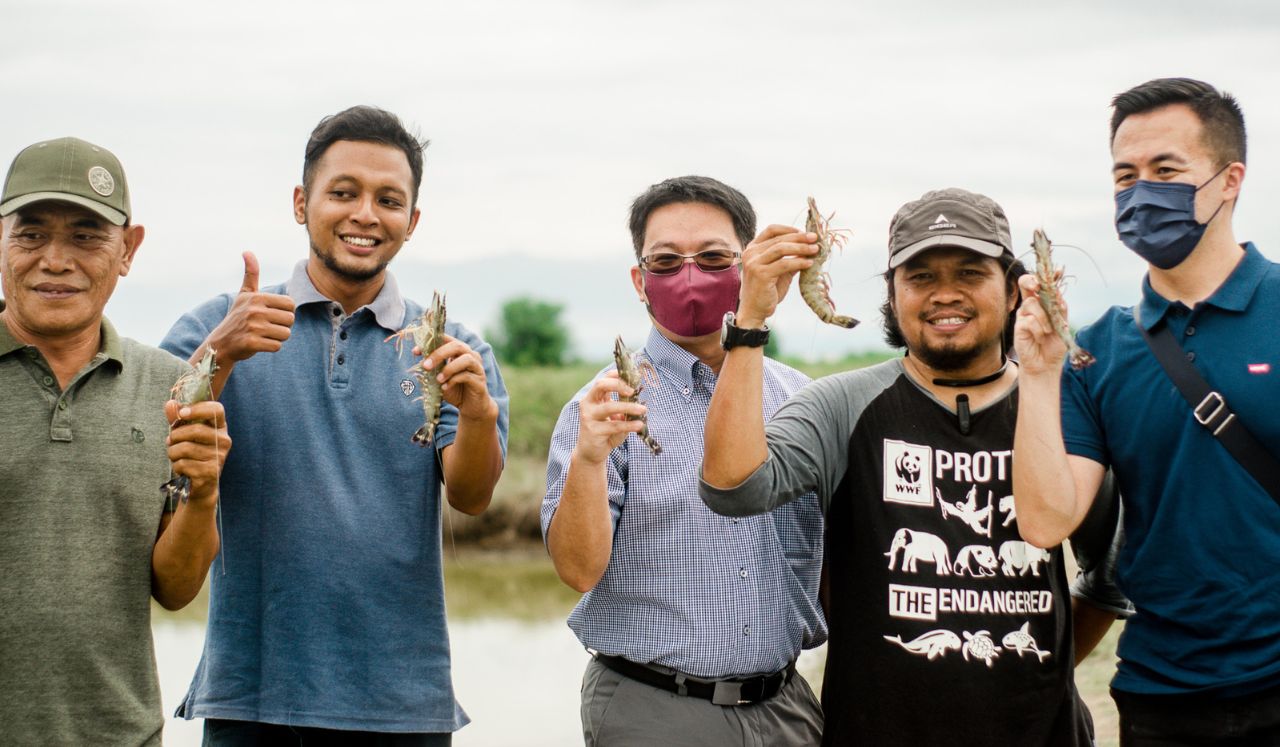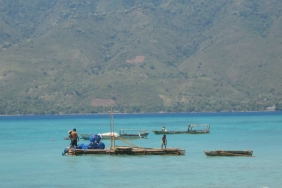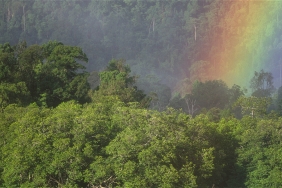RESTORING TIGER SHRIMP AS THE ORIGINAL SHRIMP OF INDONESIA
By Ninish Fajrina
Shrimp is one of your favorite foods, but unfortunately most of the shrimp circulating in Indonesia today are mostly vannamei shrimp from Central and Latin America. Then where is the original Indonesian shrimp? Tiger shrimp is the original shrimp of Indonesia, but its name faded after the introduction of vannamei shrimp, which has a higher stocking density in one pond, thus making the dollar price higher. Despite the high economic value of tiger shrimp, which amounted to 7.2 billion rupiah, the position of tiger shrimp in Indonesia has not improved.
Some countries such as Thailand, Vietnam and China took tiger shrimp broodstock from Aceh and developed them to become the top countries in tiger shrimp exports. Vietnam, for example, is able to occupy the third position in the world by producing 21.3 billion tons of tiger shrimp.
This challenge has made WWF-Indonesia through its aquaculture program team and the Ministry of Marine Affairs and Fisheries of the Republic of Indonesia (KKP-RI) through the Director General of Aquaculture (DJPB) committed to restoring the position of tiger shrimp in Indonesia. The commitment was shown at the National Workshop on Indonesian Tiger Shrimp Broodstock Management on April 30, facilitated by WWF-Indonesia by inviting all stakeholders of tiger shrimp farming, including various brackish water aquaculture development centers of DJPB, Department of Marine and Fisheries (DKP) of Aceh, North Sumatra, Banten, West Java, Central Java, East Java, South Sulawesi, East Kalimantan, Tarakan City and North Kalimantan, Research and Development Agency of KKP, Directorate of Fish Resources - KKP, various universities, tiger shrimp experts, tiger shrimp broodstock traders, and other agencies.
The workshop resulted in an agreement from various parties related to tiger shrimp farming in Indonesia to jointly restore the glory of tiger shrimp by referring to a joint action plan matrix. The matrix contains aspects of data collection, policy, conservation and stock enrichment, tiger shrimp stock management in nature, provision of superior tiger shrimp broodstock cultured, socio-economic culture, supervision in the utilization of tiger shrimp resources.
The formulation of the workshop was supported by Wawan Ridwan (WWF-Indonesia Coral Triangle Program Director) to be the best solution in tiger shrimp management. In addition, the Director General of Aquaculture and Marine explained "Tiger shrimp is our flagship commodity and native to Indonesia and blue economy-based aquaculture management that does not damage the ecosystem".
The implementation of the national workshop in Jakarta is expected to be a big step for tiger shrimp farming to return to glory both nationally and internationally starting with the management of tiger shrimp broodstock itself.





